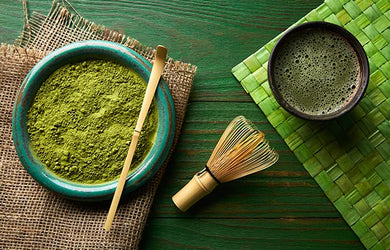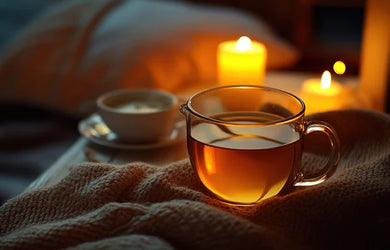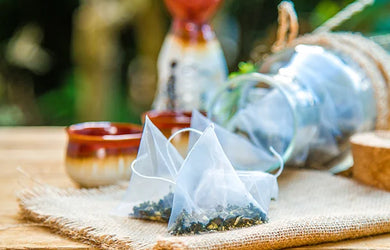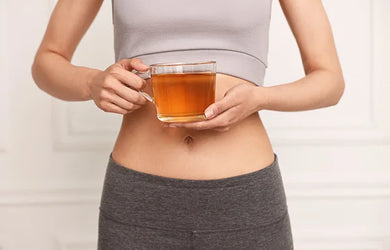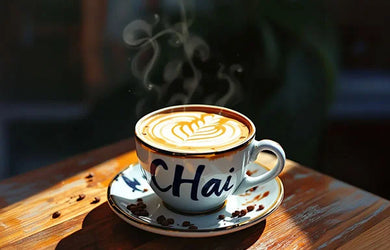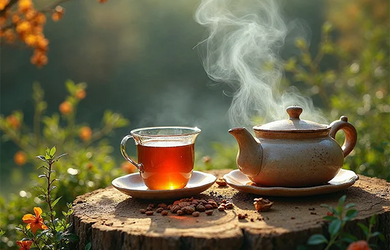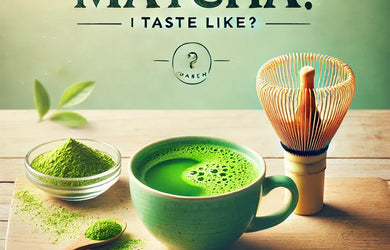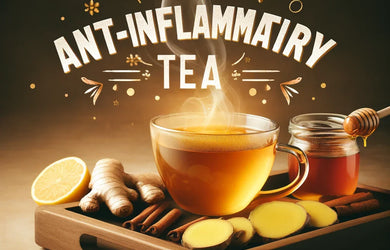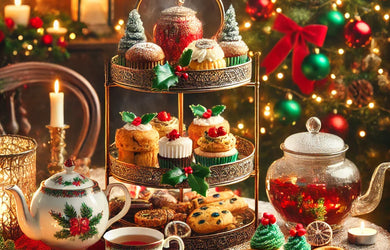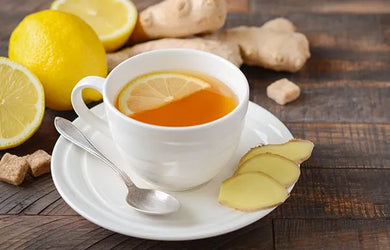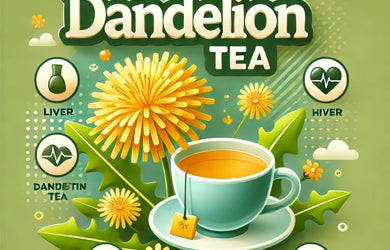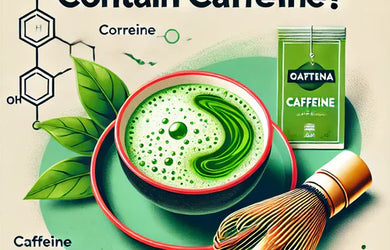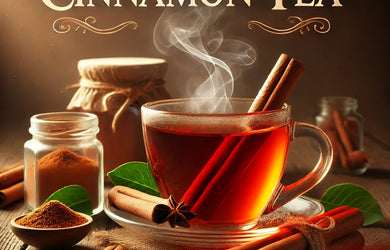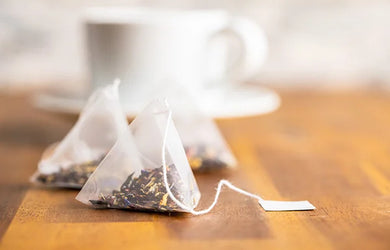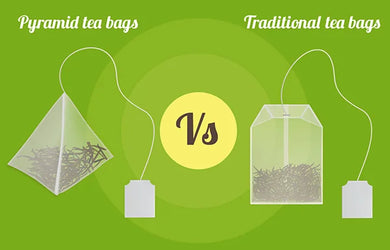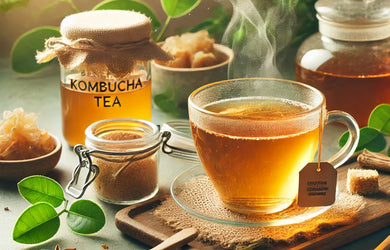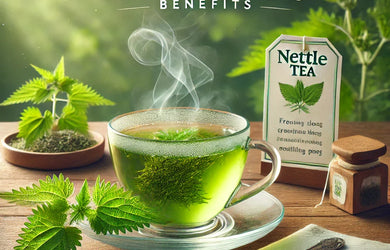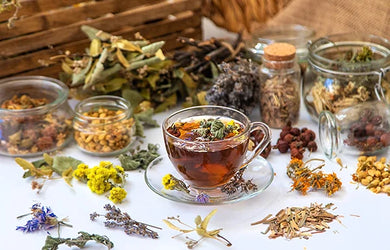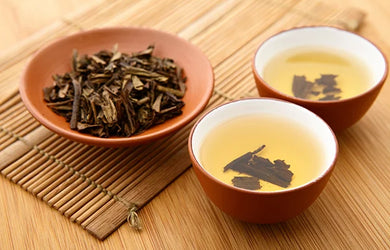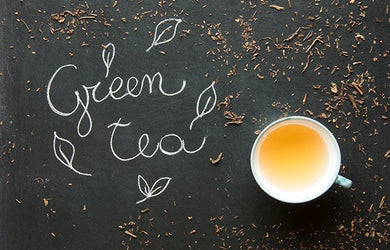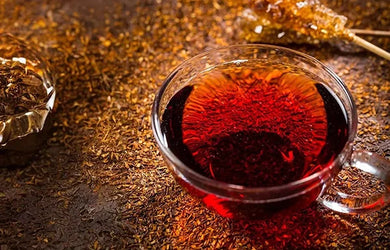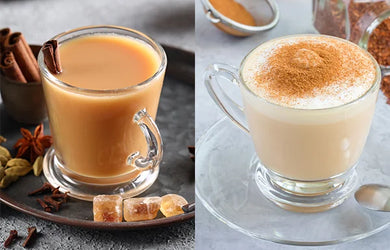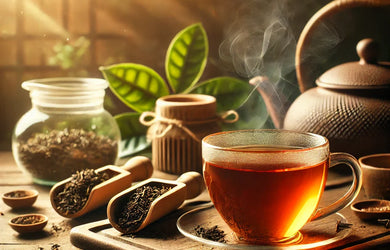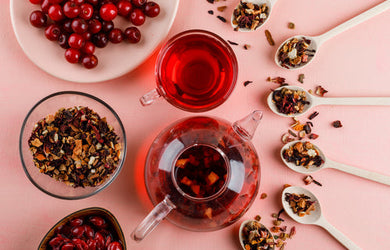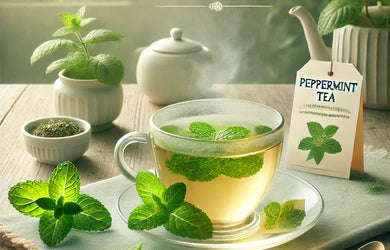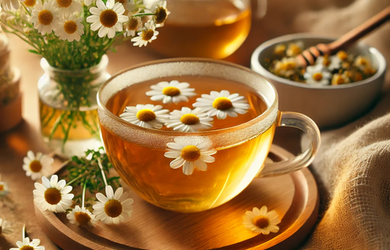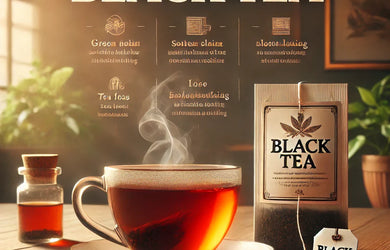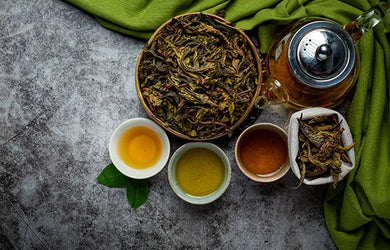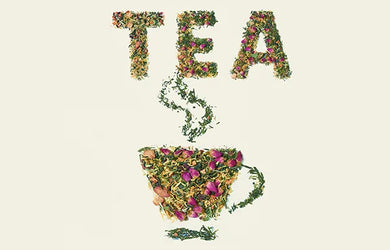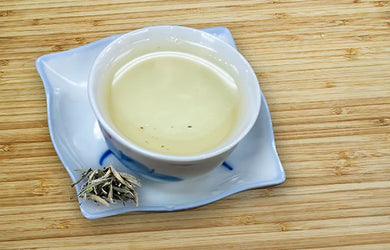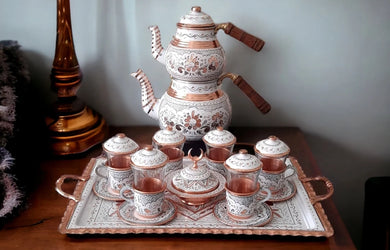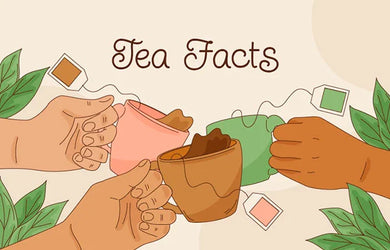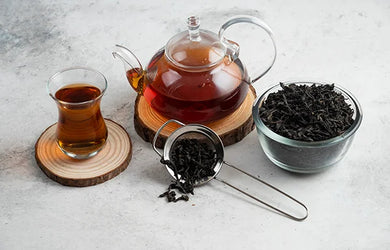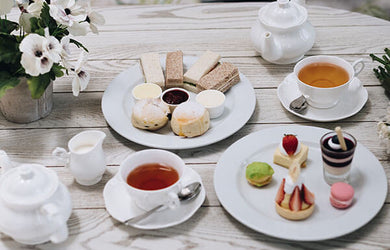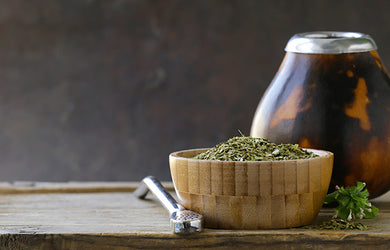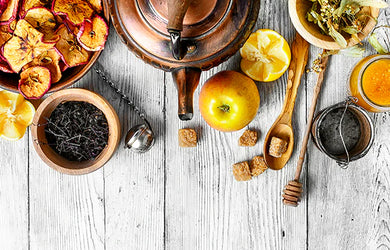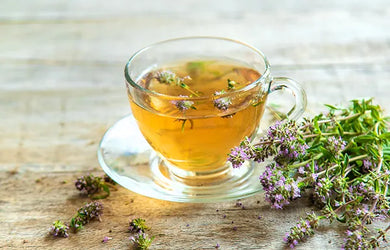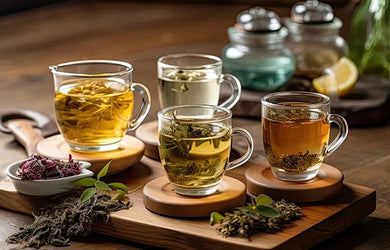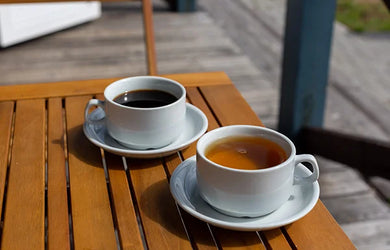caffeine is a bit of a double-edged sword that comes with energy as well as some health concerns. that’s probably the reason we find ourselves discussing its content in two of aussie favourites – tea and coffee. the strength of caffeine in tea vs coffee is a topic of an ongoing debate, showing no signs of ending. a perpetual discussion within our caffeine culture down under!
so, here we are with some facts and figures to fuel your discussion, the next time you engage in one, with your mates. let’s keep digging into the facts on caffeine in tea vs coffee for the sake of our health.

What is Caffeine?
caffeine is the reason your morning tea or coffee makes you feel more alert. this natural compound stimulates the central nervous system, changing the way signals travel through your brain and helping you stay alert.
while caffeine also shows up in foods and drinks like chocolate, soft drinks and energy drinks, most people still turn to tea and coffee. that’s partly habit, and partly because of the experience of caffeine in tea vs coffee.
after you drink it, caffeine enters your bloodstream within half an hour. once it reaches the brain, it blocks adenosine – the chemical that signals tiredness. with that switch turned off, other brain chemicals kick in, giving you more focus, energy and alertness.
caffeine in tea vs coffee: an overview
many of us reach for a cup of coffee or tea to battle the morning lethargy or to stay alert during the day. yet not many notice the differences in caffeine from coffee vs tea.
while coffee shakes us out of lethargy, tea gives a gentle and sustained boost. this distinct action of caffeine from coffee vs tea makes tea a favourable choice for sustained alertness without the inevitable energy crash.
but let's not stop there – it’s time to go deeper into our comparison of caffeine in tea vs coffee. our goal is to uncover the crucial elements that influence the potency of caffeine in coffee vs tea. it's all about understanding the underlying factors at play.
so, let’s start with the type of tea or coffee bean in question – black or green tea? arabica or robusta coffee? these factors set the baseline for caffeine levels.
then comes the brewing process – water temperature, how long you let it brew, and the amount of tea leaves or coffee grounds you use – all play their part.
in short, these variables define the evaluation of caffeine in tea vs coffee. we’ll observe how tweaking them affects the final strength of your brew.
Caffeine in Coffee
to get a sense of caffeine in tea vs coffee, we’ll start with coffee. the first step is to understand what affects the strength of caffeine in your drink. the amount you get depends on the type of beans, the grind, the brewing method and the serving size. keeping these factors in mind helps set the stage for a clearer comparison of caffeine in tea vs coffee.
type of bean
coffee comes from more than 120 types of beans, but most of the coffee we drink comes from just two – arabica and robusta. arabica is the clear favourite worldwide, largely because of its smoother taste and milder caffeine hit.
robusta, on the other hand, has a stronger and more bitter flavour and almost twice as much caffeine. to put it in perspective, 100 grams of arabica beans contain roughly 1.3 grams of caffeine, while the same amount of robusta contains about 2.5 grams.
grind size
believe it or not, the grind size of your coffee can change how much caffeine you get. finer grounds give water more surface to work on, so caffeine comes out faster and the coffee feels stronger. hotter water also pulls out more caffeine – one reason espresso shots are stronger than other options. paying attention to these details makes it easier to compare caffeine in tea vs coffee, and can help you get the caffeine boost you want.
preparation style
caffeine from coffee vs tea isn’t the only thing to think about – the style of coffee you choose also matters. different styles are prepared in different ways, and that changes how much caffeine you get. for example, a flat white usually comes with two shots of espresso, adding up to about 136 mg of caffeine per serve. a latte, on the other hand, is made with just one shot, which gives it around 68 mg – roughly half the caffeine of a flat white.
switching the espresso in a flat white to moka pot coffee cuts the caffeine roughly in half, so the type of preparation can make a real difference to your caffeine intake.
caffeine content in tea
to really understand caffeine in tea vs coffee, it helps to look at how caffeine varies in tea. tea comes with a wide range of caffeine levels – from bold and energising to gentle and calming.
type of tea leaves
several factors shape how strong your drink turns out, and one of the biggest is the type of tea you choose.
black teas generally have the most caffeine. but even then, a 180 ml cup has about 50 mg – still far lower when you look at caffeine in coffee vs tea. if you swap your black tea for oolong, the caffeine goes down to around 30–40 mg, and drops further with green. it’s usually closer to 20–30 mg. and if you really want the mildest option, white tea tops the list with just 15–20 mg per cup.
at the other end of the spectrum are teas that are caffeine-free. these herbal teas bring a completely different perspective to the caffeine in tea vs coffee discussion, as most are naturally caffeine-free.
yerba mate is the exception. even though it doesn’t come from the traditional tea plant, it’s not a caffeine-free tea. in fact, it contains almost as much caffeine as coffee – a unique case in the caffeine in tea vs coffee discussion.
processing
how your tea leaves are handled makes a difference. crushed or broken leaves release caffeine more quickly, while whole leaves tend to be gentler.
steeping methods and water temperature
there are three main factors in steeping that really change the caffeine levels in your tea – water temperature, steeping time and the amount of tea leaves you use.
- more leaves get you more caffeine.
- hotter water pulls out more caffeine from the tea leaves.
-
a short steep keeps your drink light in caffeine, while brewing it longer makes it stronger.
How Much Caffeine is Too Much for Your Body?
caffeine is great for waking you up and sharpening your focus, but too much of it can backfire. the catch is that there isn’t a single number that fits everyone – it depends on things like your age, weight, health and how sensitive you are.
that said, most health experts agree it’s best to stay under 400 milligrams a day. in real terms, that’s about 4 cups of brewed coffee, 2 strong cups of tea, 2 energy shots or 10 cans of fizzy drink. if you go over that limit, you could end up feeling anxious, struggling to sleep or dealing with an upset stomach. that’s why knowing caffeine in tea vs coffee matters.
Tea vs Coffee – Which One Should You Drink?
who’s the real winner when it comes to the benefits of caffeine from coffee vs tea? well, let’s take a closer look at how they compare.
taste
when it comes to taste, it’s all personal. coffee has a strong flavour, leaning toward bitterness. tea, on the contrary, is lighter and more delicate. it’s interesting to see how other aspects of caffeine in coffee vs tea can change the experience.
effects of caffeine in tea vs coffee
caffeine in tea vs coffee can affect people differently. in our experience, tea usually gives a more balanced energy boost, while many people feel a sharper boost from coffee.
health benefits of caffeine in tea vs coffee
caffeine can do more than just wake you up, but the benefits of caffeine in coffee vs tea vary depending on various factors.
tea may help keep your heart healthy, support weight management, and even promote gut health. coffee, on the other hand, is better known for giving your mental alertness a sharp lift. seeing it this way gives a clearer picture of caffeine in tea vs coffee and how each can fit into your daily routine.
amount of caffeine in tea vs coffee
how much caffeine is in your cup can really change depending on a few things, which makes comparing caffeine in coffee vs tea a bit tricky.
tea usually has less caffeine and can be a better option for anyone sensitive to it. however, even the same type of tea or coffee can end up stronger or lighter depending on how long you brew it, steep it or how big your serving is. thinking about caffeine from coffee vs tea this way helps you choose your drink properly.
Conclusion
after comparing caffeine in tea vs coffee on various parameters, it’s clear that there isn’t a single “right” drink for everyone. both have their own strengths, and the way they affect you depends on the type of drink, how it’s made, and even how your body handles caffeine.
that said, if you're too sensitive to caffeine, tea might be the smarter choice. it provides a balanced and steady boost without overwhelming your system. unlike coffee, you experience a smoother energy that lasts longer.
so next time you need a drink, just think about the kind of experience you want.
FAQs Related to Caffeine in Tea vs Coffee
Q. How much caffeine is in tea vs coffee?
A. when you check caffeine from coffee vs tea in a standard cup, coffee usually comes out stronger. the numbers tell the story – about 95 mg per cup for coffee compared to 25-60 mg for tea. that said, certain factors can make a noticeable difference in the strength.
Q. is caffeine in tea stronger than coffee?
A. if you compare caffeine in tea vs coffee by weight, tea can feel more intense. but in a regular serving, coffee is usually stronger. the caffeine content in coffee is much more than that in tea, around 95 mg/cup compared to 25-60 mg/cup. the actual strength can change based on the type and brewing method.
Q. Which is stronger – coffee or tea?
A. when we say “stronger”, we mean which drink has more caffeine. coffee is usually stronger, with around 95 mg/cup. tea is milder and smoother with a caffeine content of 25–60 mg/cup. keep in mind, though, that brewing methods and several other factors can change how strong your drink is.
Q. how much caffeine can i have in a day?
A. most experts suggest keeping caffeine between 200–400 mg a day. that works out to about 2–4 cups of coffee or 4–8 cups of tea. the best approach is to know your own tolerance to caffeine from tea vs coffee. that’ll help you avoid the side effects of higher caffeine consumption.
Q. what drink is the highest in caffeine?
A. if we’re considering common drinks, coffee is usually the one with the highest caffeine. some energy drinks or concentrated pre-workout shots can contain even more, but among common beverages, coffee generally has the highest caffeine per standard serving. tea comes in lower and other everyday drinks like soft drinks or hot chocolate contain much less.









